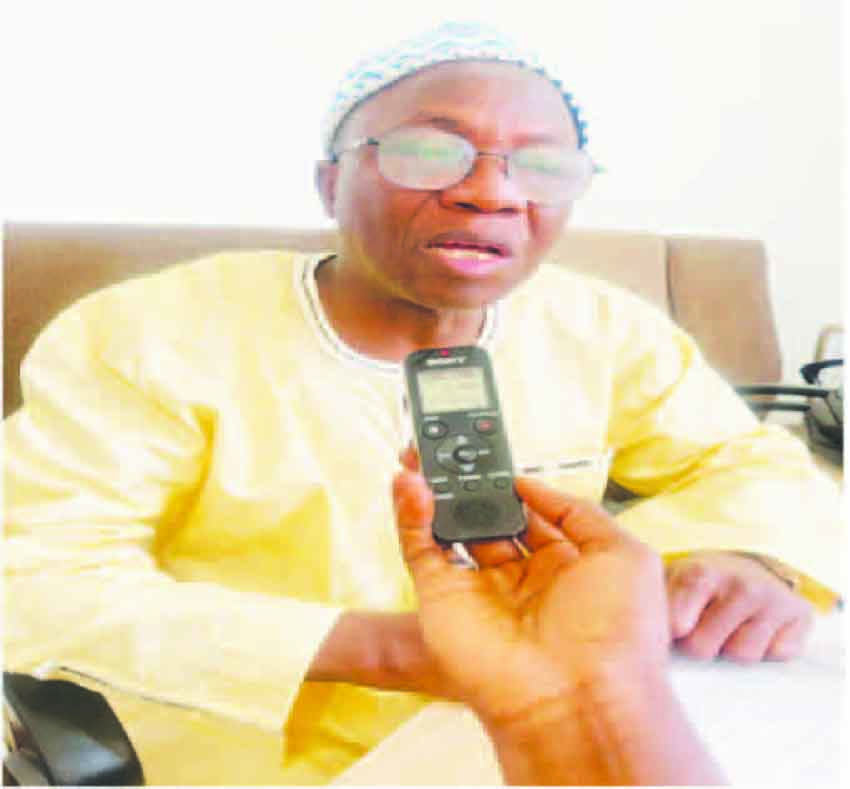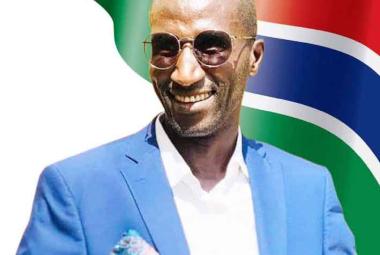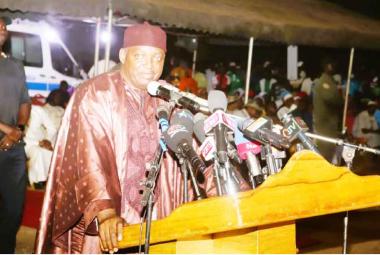By Kumba Leigh
The National Assembly of the Republic of The Gambia is unicameral and consists of fifty-eight members who serve a five-year term. Fifty members are directly elected while the remaining five are nominated by the President.
Quite interesting aspect of the National Assembly is the language used to conduct the business of our legislative house. English has been that language. Section 105 of the 1997 Constitution of The Gambia states that the business of the National Assembly shall be conducted in English language or any other language prescribed by an Act of the National Assembly, while the 2024 Draft Constitution, section 146 indicates that the business of the National Assembly shall be conducted in the English language or in any other language indigenous to The Gambia. Despite provision for other languages to be used for parliamentary procedures and processes other than English language, the English language has continued to be the only language of business in the Assembly.
Many Gambians have questioned the logic of use of English language in parliament for debates and exchanges on legislative matters when perhaps majority of their constituents they are representing do not understand the language. Besides, it is widely believed that the use of national indigenous languages in parliament will honour the linguistic diversity and preserve the country’s rich cultural heritage, while enhancing effective citizen engagement in the legislative process.
English has long served as Gambia’s official language, a legacy of British colonial rule. Should that not be enough good reason to prioritise our national languages in such critical exercises like law-making?
In this piece we gauge the opinions and views of law-makers and language experts about the possibility of legislating the use of national languages in the legislature.
Honorable Suwaibou Touray, National Assembly Member for Wuli East Constituency, doubling as the Chairperson for the Public Petition Committee of National Assembly, some time ago introduced a private member bill on the use of national languages in parliament. He opined that The Gambia National Assembly should come with an Act that will help reinforce Section 105 of the 1997 Constitution, and help advance the constitutional mandate of governance and development.
“I introduced a Private Member Bill relating to the use of national (native) languages in Assembly proceedings, which is currently on the processing stage. It has been gazetted and will be presented before the relevant committees for scrutiny. National Assembly Members owed it to the people they represent. Therefore, they should make sure they adequately and effectively explain the laws and decisions made on their behalf,” he pointed out.
He posited that a number of researches have proven that countries using their national languages in parliament have gained a positive impact on the continent, and the world at large.
“It is important that countries start inculcating their national languages in their curricula from nursery to tertiary level. This will help improve our native languages and enhance language diversity, good governance and inclusivity in decision-making processes, and development,” the Wuli East NAM stated.
He said supporting such an initiative will help create jobs for the youth through the hiring of interpreters, promote innovations and provide positions at the Assembly and also showcase talents and education for young people to learn.
He went on: “Some of my parliamentarian colleagues are complaining that English is a problem, and this has impacted many of them not contributing effectively. Even if one’s English proficiency is good; yet still there is communication barrier, and if you cannot translate it in a native language and this is big problem.”
The lawmaker however expressed optimism that the initiative will yield dividend, because many parliamentarians are interested and in support of it.
We gauged the opinions of some Gambians about the use of our native language in parliament and many have expressed the importance of understanding what their representatives discuss in parliament.
Aja Kaaba Jorbateh , a 41-year-old and native of Kuntaur in the central part of The Gambia, argued that they only see their parliamentarians on screen speaking, but they cannot understand what they try to communicate, because they are illiterate in English language.
“We will be grateful if some native languages are spoken by parliamentarians while discussing issues of our country. Is important because they are our representatives and they should be able to address our concerns in a language we can understand. We cannot participate in discussions that we have no idea about,” Madam Aja Kaaba stressed.
For Serign Faye, Chairman of National Centre for Civic Education, The Gambia, emphasised the need for awareness creation around the significance of national languages as a means of effective communication.
He noted that development of national language policies, is vital for the advancement of a country. He cited countries like China, Senegal amongst others, which prioritise their national languages and are developing as a result of effective communication with their indigenous people through the use of national languages. He therefore challenged The Gambia to do the same.
“National languages help us to understand our various cultures, moral teachings, and the norms and values. People should be effectively represented. We face numerous problems, especially in the up-country, where most of our indigenous people do not know, and understand the roles and responsibilities of their NAMs.This has affected their communications on issues of governance. During our civic awareness and tour you realise that there is a lot of misinformation circulated among the people about governance; ranging from the 1997 Constitution, the 2020 draft constitution, and the new draft constitution respectively,” he lamented.
Honorable Sulayman Jammeh, National Assembly Member for Bundung Kakunda, also recognised the importance national languages in national assembly proceedings and debates. Parliamentary work is about representation and making laws; so communicating to people you represent should be clear and done in a manner they can understand the language”.
The NAM however, said he foresees challenges in the area of what language to select but expressed belief that it is doable.
Omar Cham, Speaker, Gambia National Youth Parliament had this to say: “As representatives of the people, it is essential that proceedings of parliamentarians reflect concerns of the people of their various constituencies, and its linguistic diversity.
“By embracing local languages, we ensure proceedings are not only limited to English language, but at least three other languages that the general public understood in The Gambia, because it is proven that this will help enhance governance and democratic processes,” Mr Cham highlighted.
Honorable Billey G. Tunkara, Majority Leader and National Assembly Member for Kantora Constituency expressed disappointment that the 1997 constitution does not indicate any specific native language in their debates. He suggests there be an act of parliament by the National Assembly to abrogate legislation for native languages initiation in Assembly debates.”
“We have to understand that we are resource constraint and in order to achieve this, it requires structural arrangement, upgrading of the Gambia National Assembly chambers and this incorporates different interpretations. Gambia has a complex society whereby people speak different languages, but we should be mindful of ethnic stereotyping. The fear factor is that, we will not want it look like a tribal race, and then it will defeat the purpose. It requires national consultation,” the Majority Leader observed.
Mr. Momodou Joof, Language expert, and Deputy Director GRTS, posited that the introduction of national languages in Gambia’s Parliament is a comparative advantage, but also a challenge. He stressed that there are dialects of the same context, but different phrases and pronunciations, especially when written in a sentence.
Mr Joof said: “For example, in the Mandinka dialect for knife, Kombo settlers will say ‘Murubaa, while those in the rural Gambia called it ‘Fangho’. This can also contribute to changing the narrative, depending on the context in which it is used.”
Deputy Director, Mr Joof suggested for a standardised curriculum on national languages in Gambia’s education system, so that children are able to learn and know how to read and write their national languages, and promote story-telling among children.
National Assembly Member for Kiang West Constituency, Honourable Lamin Ceesay, while acknowledged the need for it, pointed out the challenge of cost on government in hiring interpreters, and other appointments.
Lower Fulladu West National Assembly Member, Gibril Mballow submitted that 80% of the people he represents in his constituency cannot speak and understand English.







